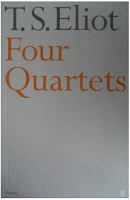
Friday, February 29, 2008
Thursday, February 28, 2008
Are You Proposing?

Wednesday, February 27, 2008
An Early Spring
Tuesday, February 26, 2008
For You Departed
Monday, February 25, 2008
Rant: On Sickness, Old Age, Laundry, GChat, Insults (Or the Absence of Compliments, Really) and Men
Sunday, February 24, 2008
On Wooing Women

The rhetoric of Harry's wooing is remarkable. At his flattery, she quickly replies, "O bon Dieu! les langues des hommes sont pleines detromperies"--the tongues of men are full of deceits. At which Harry must change his tact and simply appeal to her pity and his inability to speak well (which just clearly isn't true--I don't know if he actually was plain, but Kenneth Branagh sure is, which makes it convincing--but if nothing else, Harry can speak well and we see it throughout the play, from the speeches to his men to his obvious expertise at wooing). Once he starts to get Katherine and know that he's gotten her, he insults women: "I will tell thee in French; which I am sure will hang upon my tongue like a new-married wife about her husband's neck, hardly to be shook off." If that is what he thinks women are like, why is he bothering with marriage? (Because women are something like land--worth conquering and ruling.)
Ode to a Cavalier
 Mine was red, but you get the picture. We drove it, today, to a junk yard. As the man "forgot his checkbook," we are only hoping for a hundred dollars in the mail. Ah, well.
Mine was red, but you get the picture. We drove it, today, to a junk yard. As the man "forgot his checkbook," we are only hoping for a hundred dollars in the mail. Ah, well.Let's see: the car was a graduation gift. My sister and I drove it jet lagged to Texas immediately upon our return from Europe the summer I got it. I nursed it through various maladies, such as a crusty catalytic converter, a new flywheel, replacing the freeze plugs (that included about a thousand trips to the auto parts place, trying to find ones of the correct size), to name really only a few of the things that went wrong with it.
On that car, I learned how to check oil, replace headlights, and replace fuses--the grand total of all my mad car skills (boys dig car skills). I never crashed it. That is the first car that holds that distinction.
But boy, I will miss it--listening to the radio way up loud by myself and feeling like a very independent woman/race car driver.
Saturday, February 23, 2008
Reflection on Detachment Or Rhapsody on Plum Blossoms in Standard Running Script

so many things seem filled with the intent
to be lost that their loss is no disaster.
of lost door keys, the hour badly spent.
The art of losing isn't hard to master.
places, and names, and where it was you meant
to travel. None of these will bring disaster.
next-to-last, of three loved houses went.
The art of losing isn't hard to master.
some realms I owned, two rivers, a continent.
I miss them, but it wasn't a disaster.
I love) I shan't have lied. It's evident
the art of losing's not too hard to master
though it may look like (Write it!) like disaster.
John Keats
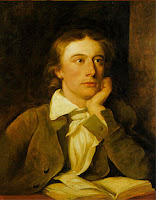
Before my pen has glean'd my teeming brain,
Before high piled books, in charact'ry,
Hold like rich garners the full-ripen'd grain;
When I behold, upon the night's starr'd face,
Huge cloudy symbols of a high romance,
And feel that I may never live to trace
Their shadows, with the magic hand of chance;
And when I feel, fair creature of an hour!
That I shall never look upon thee more,
Never have relish in the faery power
Of the wide world I stand alone, and think,
Till Love and Fame to nothingness do sink.
Friday, February 22, 2008
Baby, It's Cold Outside
Thursday, February 21, 2008
Wednesday, February 20, 2008
Tuesday, February 19, 2008
On Greeting Cards

Hannah Arendt and Heidegger talk about how if we don't express particular parts of ourselves as humans, we may lose the ability to express them at all. Arendt says this in regard to freedom. At a much more mundane level, I think greeting cards may emotionally handicap us. If we aren't able to express our emotions to those we love most, me may lose our capacity to do so. The best thing that greeting cards can possibly be is well-chosen. They rarely show or develop a deep level of self-understanding or the ability to express sentiments well. They make it all too easy not to learn to articulate your own feelings and express your own love and appreciation.
Monday, February 18, 2008
On Words and Images

Later he writes, "You would have to put off / Sense and notion." This putting off of sense experience, this "midwinter spring"--a spring not like one we typically experience--is for the purpose of prayer and communion.
Sunday, February 17, 2008
On the Virtue of Doubt

Friday, February 15, 2008
On the Death of a Language

 Li-Young Lee is an American poet, born in Indonesia to a Chinese pastor.
Li-Young Lee is an American poet, born in Indonesia to a Chinese pastor.The themes that he deals with are of great interest to me--questions of home and place and travel and unity of body and soul. He writes about the effort to remember your origins, which seems to me to be, at least in part, what the doctrine of recollection gets at, and also the question of founding, but at a personal rather than communal level.
He writes also, "I am never done answering to the dead," and shows how his answers to the dead (in this case to his father, who asks him if he's prayed) are not what the dead will always expect (he answers through poetry). This makes me wonder if all we get from the past are questions.
Thursday, February 14, 2008
Tractor: A Unique Way to Attract Her

Rural people even redeem online dating--what can be shady if your grandfather is with you at Bonanza? Okay, so there are some questionable aspects: they got cow cake toppers and will ride a tractor home from their wedding...
Wednesday, February 13, 2008
A Lament or On SuperPoke

Tuesday, February 12, 2008
Open-Access Scholarship

Does Erring Conscience Bind?


Monday, February 11, 2008
Three Sisters

The Sisters
Look how the same possibilities
unfold in their opposite demeanors,
as though one saw different ages
passing through two identical rooms.
Each thinks that she props up the other,
while resting wearily on her support;
and they can't make use of one another,
for they cause blood to rest on blood,
when as in the former times they softly touch
and try, along the tree-lined walks,
to feel themselves conducted and to lead;
ah, the ways they go are not the same.
Rainer Maria Rilke
Sisterhood is one of the most delightful things in all of life. It is also difficult, as Rilke shows us here: relationship requires sameness and difference and in sisters, the sameness and difference are both extreme. He uses the metaphor of different ages (this is incredibly disparate--different ages can barely even be compared with one another) passing through identical rooms. You can't get more the same than identical. This captures the immensely different personalities passing through very similar structures, persons bound by blood.
The second stanza points to the limits of family and tradition. Finally, while sisters think that they are supporting the other, blood can't hold up blood. This points the need for friendship and for other traditions to supplement your own. The last stanza captures the pain of change, particularly
 in families where changing can lead one to be perceived as a traitor.
in families where changing can lead one to be perceived as a traitor.When I was young, my parents pointed out the constellation called the three sisters in the sky (this, I've lately discovered was a conflation of the seven sisters with Orion's belt, three bright stars approximately evenly spaced). But it's a nice myth, and I think I'll keep on sharing it with other people.
Sunday, February 10, 2008
Women and Work
This brings Sex and the City, which, through its very different characters, explores various ways of addressing what is a rather new problem--how to live as an unmarried working woman. I tell my father all the time thanks very much for looking out for me still, because, for much of the history of man, I would've run from my father's house to the arms of a husband. I think that Sex and the City is important for not holding back from asking these questions, but ultimately (obviously) falls short in suggesting that women (aided by birth control) can/should act just like men, rather than emphasizing the strengths that women bring to men--their ability to help men know and understand themselves, their ability to help connect men to the concrete, etc.
 Lipstick Jungle offers only three women (scandal!): unmarried, married with children, and married to an old, boring professor (ah! professors are not boring!).
Lipstick Jungle offers only three women (scandal!): unmarried, married with children, and married to an old, boring professor (ah! professors are not boring!). Saturday, February 9, 2008
Wrestling with God
Friday, February 8, 2008
Poetry over Prose (1)

A first attempt at responding to JBL's question about why we need poetry at all when we already have prose through which to communicate:
I'm pretty sure it has a lot to do with communication through images and symbols.
Samuel Taylor Coleridge offers insight into this question. According to Coleridge, three of the five parts of the soul are the Understanding, Imagination, and Reason. He has a very different understanding of these from how we understand them today. For Coleridge, the Understanding is concerned with sense experience. Reason, on the other hand, is both our perception and the reality that we perceive. Imagination is the thing that leads the faculty of our Understanding to participate in Reason (and Imagination is most remarkable for its unifying power). This most often happens through poetry and in the Scriptures. I'm not going to lie, the following bit is from a paper I wrote years ago (sorry, there are footnotes):
One Coleridge scholar writes about the difference between poetry and prose in Coleridge's thought: “Prose will be the medium of the understanding; analysis and generalization will be the modes of thought, and they will require intellectual assent from the reader. Imaginative, symbolic, paradoxical, and nonrational language will presumably be excluded [from prose], because its proper medium is poetry.”[1] As Coleridge’s career develops, he is increasingly convinced that “prose, considered as the language of distinctions, definitions, logic (in short, of the understanding), is ultimately futile.”[2] Poetry unifies particularly through its use of symbols.[3] The symbol is “the awakening source” of the power of the imagination, “its mediatory channel and its product, that which reveals the universal in the particular and which is often the means of raising human consciousness to the contemplation of spiritual truth.”[4] The symbol not only points to reality, but it is the “inward unity of the objective reality of the universal idea and the subjective apperception of that reality expressed in a particular form.”[5] Symbols, then, somehow participate in that objective reality that they also work to communicate to us. Poetry, through its use of symbols, brings together the subjective and objective through the participation of symbols (at least in a small degree) in the objective itself. It parallels that use of language by God in the creation of the world, when language brought order to chaos.[6] Here we see an apologia for the importance of literature and other art that develops the imagination, and particularly for poetry, since it unifies the Understanding and the Reason through symbol. The Logos, or Christ, is the greatest of all symbols, because he mediates between God and man.[7] Coleridge’s idea of the Logos is a key part of his thought, but he does not fully develop it (he planned to but left unwritten a book about this idea in particular). The Logos is both a principle and a Person, as identified in the book of John.[8] It is both the Word and words, “the source and living power of language.”[9] It is, in a sense, the Imagination as applied to God.
[1] David R. Sanderson, “Coleridge’s Political ‘Sermons’: Discursive Language and the Voice of God,” Modern Philology, 70.4 (May 1973), 322.
[2] Ibid., 324.
[3] Douglas Hedley, Coleridge, Philosophy and Religion: Aids to Reflection and the Mirror of the Spirit, (Cambridge: Cambridge University Press, 2000), 132.
[4] Mary Anne Perkins, Coleridge’s Philosophy: The Logos as Unifying Principle (Oxford: Clarendon Press, 1994), 48.
[5] Ibid., 49.
[6] Gene M. Bernstein, “Self-Creating Artifices: Coleridgean Imagination and Language,” Modern Philology, 76.3 (Feb. 1979), 246-47.
[7] Perkins, 52.
[8] Ibid., 22.
[9] Ibid., 26.
Thursday, February 7, 2008
On the Individualism of Acknowledgments
I find this line tiresome for several reasons: First of all, it is obvious and uninteresting--of course other people are not responsible for your errors, and of course you are. Second, in a way, others are complicit in your own errors, for you cannot, for instance, be expected to overcome all of the errors of your time through perfect access to universal truth. No, the people who comprise your academic community form you in many important ways.
Here's an acknowledgement I like a bit more: "A special pleasure is it to say my thanks to my friend and colleague Professor R--- for his help in improving my English. His thorough analysis of sections of the manuscript, his reasoned advice with regard to grammar and style, his congenial understanding of the relations between philosophical subject matter and means of linguistic expression, have had a pervasive effect. I can only hope that the disciple will not disappoint the master too deeply." This is noteworthy not only for its recognition of the reliance of the student on the master and the necessary connection between the two, but also for its humility in knowing that we do fail; we do make errors (something academics often like to pretend doesn't happen in the profession). Rather than saying "if there are any errors," he acknowledges that there will be disappointments and hopes that they are not too great.
But my favorite acknowledgement of all time is from a friend of mine (and this comes after a whole list of people he thanks): "To my wife Claire, for reasons I shan't disclose. Finally, to paraphrase Willmoore: Let us have no foolishness about their not being responsible for this book and its contents. All, in their own way, must bear some part of the responsibility."
Wednesday, February 6, 2008
And After This Our Exile
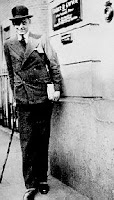
Tuesday, February 5, 2008
A Less Lovely Library



It isn't a shame that a tree covers much of the front of the building. And the inside is just as bad as the outside.
Monday, February 4, 2008
Fraction Rite

Fraction Rite
Sunday, February 3, 2008
Dove Descending
Eliot set to music, in particular, to the music of Stravinsky. Thanks to my tech-savy brother, yes, the same one who shot the potato gun.
On the Inherent Insult of Compliments

Saturday, February 2, 2008
French Second Empire




It might be the combination of granite and slate that appeals to me. Also, the fabulous Mansard roofs, which find a modern incarnation in, ironically, McDonald's:

Which Baby?
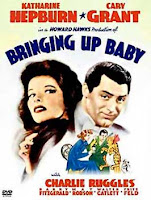
A 1938 romantic comedy with Katharine Hepburn and Cary Grant, Bringing Up Baby is a delightful film. Hepburn plays a charmingly manipulative woman, Susan, who will do anything to get her man and does get him in the end (as, of course, is fitting). And the film is all about leopards (including her pet leopard, Baby), and so appropriate for this blog.
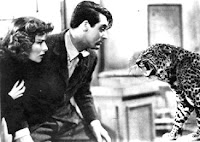
Susan pre-empts him, and she assumes things, but she does it all correctly and endearingly: "Oh David, can you ever forgive me? You can and you still love me! Oh David!"
Friday, February 1, 2008
On the Depression of Spring

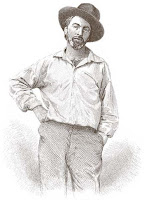
This reminds me strongly of the first lines of Walt Whitman's "When Lilacs Last in the Door-yard Bloom'd":
And the great star early droop’d in the western sky in the night,
I mourn’d—and yet shall mourn with ever-returning spring.
O ever-returning spring! trinity sure to me you bring;
Lilac blooming perennial, and drooping star in the west,
And thought of him I love.








